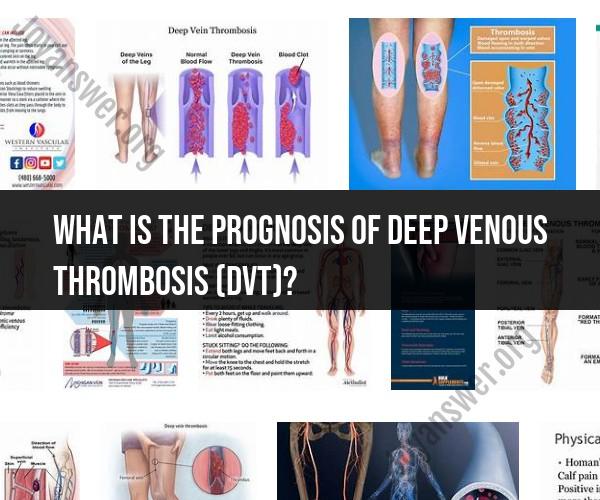What is the prognosis of deep venous thrombosis (DVT)?
Deep Venous Thrombosis (DVT) is a serious medical condition that requires prompt attention. This guide explores the prognosis of DVT, potential outcomes, and factors that influence the course of the disease.
Introduction to Deep Venous Thrombosis (DVT)
DVT is a condition characterized by the formation of blood clots in the deep veins, often occurring in the legs. If not managed effectively, DVT can lead to serious complications.
Potential Outcomes of DVT
1. Resolution with Treatment
With appropriate medical intervention, DVT can be successfully treated, and the blood clot may dissolve over time.
2. Post-Thrombotic Syndrome (PTS)
Some individuals may experience PTS, characterized by persistent leg swelling, pain, and skin changes after DVT treatment.
3. Pulmonary Embolism (PE)
In severe cases, a piece of the blood clot may break off and travel to the lungs, causing a pulmonary embolism, a life-threatening condition.
Factors Influencing Prognosis
1. Timely Diagnosis and Treatment
Early detection and prompt treatment significantly improve the prognosis of DVT and reduce the risk of complications.
2. Patient's Health Status
Underlying health conditions, such as obesity, heart disease, and cancer, can impact the prognosis and recovery from DVT.
3. Treatment Adherence
Strict adherence to medication and lifestyle changes prescribed by healthcare professionals contributes to a positive outcome.
Preventing DVT Recurrence
Preventive measures include:
1. Medication
Anticoagulants are prescribed to prevent new blood clots from forming.
2. Compression Stockings
Compression stockings help improve blood flow and reduce the risk of post-thrombotic syndrome.
3. Lifestyle Modifications
Maintaining a healthy weight, staying active, and avoiding prolonged periods of immobility can lower the risk of recurrence.
Conclusion
Understanding the potential outcomes of DVT and the factors that influence prognosis is crucial for effective management and prevention. Timely diagnosis, appropriate treatment, and adherence to preventive measures contribute to better outcomes and improved quality of life for individuals with DVT.












